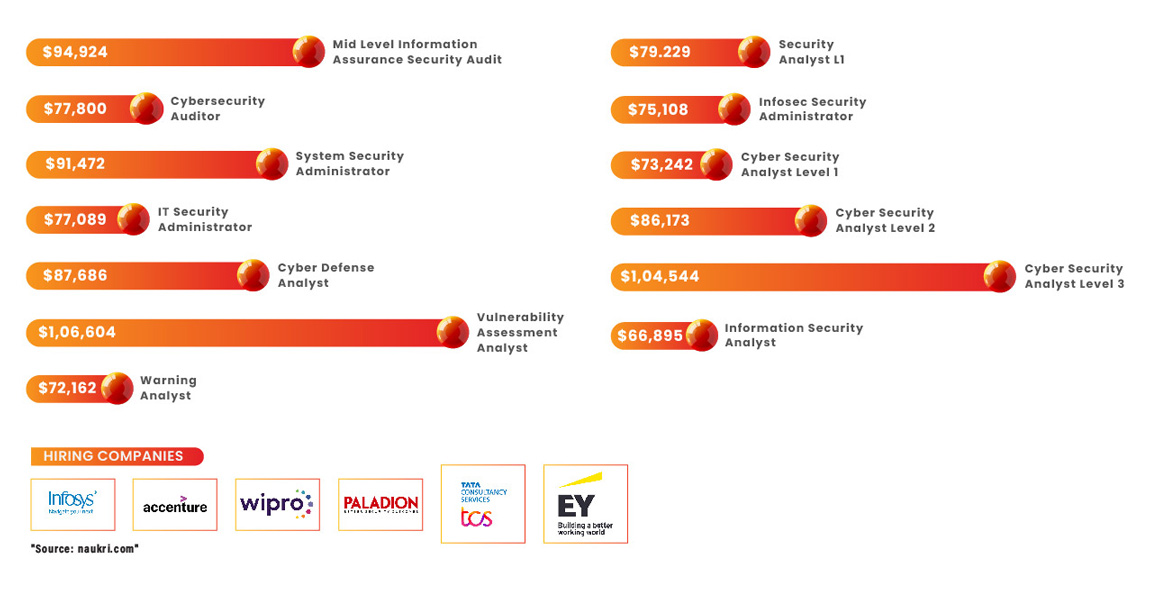Module 1: Introduction to Ethical Hacking
- Information Security Overview
- Hacking Concepts
- Ethical Hacking Concepts
- Hacking Methodologies and Frameworks
- Information Security Controls
- Information Security Laws and Standards
Module 2: Footprinting and Reconnaissance
- Footprinting Concepts
- Footprinting through Search Engines
- Footprinting through Internet Research Services
- Footprinting through Social Networking Sites
- Whois Footprinting
- DNS Footprinting
- Network and Email Footprinting
- Footprinting through Social Engineering
- Footprinting Tasks using Advanced Tools and AI
- Footprinting Countermeasures
Module 3: Scanning Networks
- Network Scanning Concepts
- Scanning Tools
- Host Discovery
- Port and Service Discovery
- OS Discovery (Banner Grabbing/OS Fingerprinting)
- Scanning Beyond IDS and Firewall
- Source Port Manipulation
- Network Scanning Countermeasures
Module 4: Enumeration
- Enumeration Concepts
- NetBIOS Enumeration
- SNMP Enumeration
- LDAP Enumeration
- NTP and NFS Enumeration
- SMTP and DNS Enumeration
- Other Enumeration Techniques
- Enumeration Countermeasures
Module 5: Vulnerability Analysis
- Vulnerability Assessment Concepts
- Vulnerability Scoring Systems and Databases
- Vulnerability-Management Life Cycle
- Vulnerability Research
- Vulnerability Scanning and Analysis
- Vulnerability Assessment Tools
- Vulnerability Assessment Reports
Module 6: System Hacking
- Gaining Access
- Escalating Privileges
- Maintaining Access
- Clearing Logs
Module 7: Malware Threats
- Malware Concepts
- APT Concepts
- Trojan Concepts
- Viruses and Worms
- Fileless Malware Concepts
- AI-based Malware Concepts
- Malware Countermeasures
- Anti-Malware Software
Module 8: Sniffing
- Sniffing Concepts
- Sniffing Technique
- Sniffing Tools
- Sniffing Countermeasures
Module 9: Social Engineering
- Social Engineering Concepts
- Human-based Social Engineering Techniques
- Computer-based Social Engineering Techniques
- Mobile-based Social Engineering Techniques
- Social Engineering Countermeasures
Module 10: Denial-of-Service
- DoS/DDoS Concepts
- Botnets
- DDoS Case Study
- DoS/DDoS Attack Techniques
- DoS/DDoS Attack Countermeasures
Module 11: Session Hijacking
- Session Hijacking Concepts
- Application-Level Session Hijacking
- Network-Level Session Hijacking
- Session Hijacking Tools
- Session Hijacking Countermeasures
Module 12: Evading IDS, Firewalls, and Honeypots
- Intrusion Detection/Prevention System (IDS/IPS) Concepts
- Firewall Concepts
- IDS, IPS, and Firewall Solutions
- Evading IDS/Firewalls
- Evading NAC and Endpoint Security
- IDS/Firewall Evading Tools
- Honeypot Concepts
- IDS/Firewall Evasion Countermeasures
Module 13: Hacking Web Servers
- Web Server Concepts
- Web Server Attacks
- Web Server Attack Methodology
- Web Server Attack Countermeasures
- Patch Management
Module 14: Hacking Web Applications
- Web Application Concepts
- Web Application Threats
- Web Application Hacking Methodology
- Web API and Webhooks
- Web Application Security
Module 15: SQL Injections
- SQL Injection Concepts
- Types of SQL Injection
- SQL Injection Methodology
- Evasion Techniques
- SQL Injection Countermeasures
Module 16: Hacking Wireless Networks
- Wireless Concepts
- Wireless Encryption
- Wireless Threats
- Wireless Hacking Methodology
- Wireless Attack Countermeasures
Module 17: Hacking Mobile Platforms
- Mobile Platform Attack Vectors
- Hacking Android OS
- Hacking iOS
- Mobile Device Management
- Mobile Security Guidelines
- Mobile Security Tools
Module 18: IoT Hacking & OT Hacking
- IoT Hacking
- IoT Concepts and Attacks
- IoT Hacking Methodology
- OT Hacking
Module 19: Cloud Computing
- Cloud Computing Concepts
- Container Technology
- Serverless Computing
- Cloud Hacking
- Cloud Hacking Methodology
- AWS Hacking
- Microsoft Azure Hacking
- Google Cloud Hacking
- Container Hacking
- Cloud Security
Module 20: Cryptography
- Cryptography Concepts and Encryption Algorithms
- Applications of Cryptography
- Cryptanalysis
- Cryptography Attack Countermeasures
 Read Reviews
Read Reviews



 5th Sep: Weekend
5th Sep: Weekend 





 I was Deepak's CEH student. He is highly knowledgeable, hands-on and adept at using various tools and scripting. He gave us a deep insight into the subject. He is very passionate about teaching and teaches beyond the syllabus with great emphasis on practical learning. I would defin
I was Deepak's CEH student. He is highly knowledgeable, hands-on and adept at using various tools and scripting. He gave us a deep insight into the subject. He is very passionate about teaching and teaches beyond the syllabus with great emphasis on practical learning. I would defin






 1800-843-7890 (India)
1800-843-7890 (India) 
